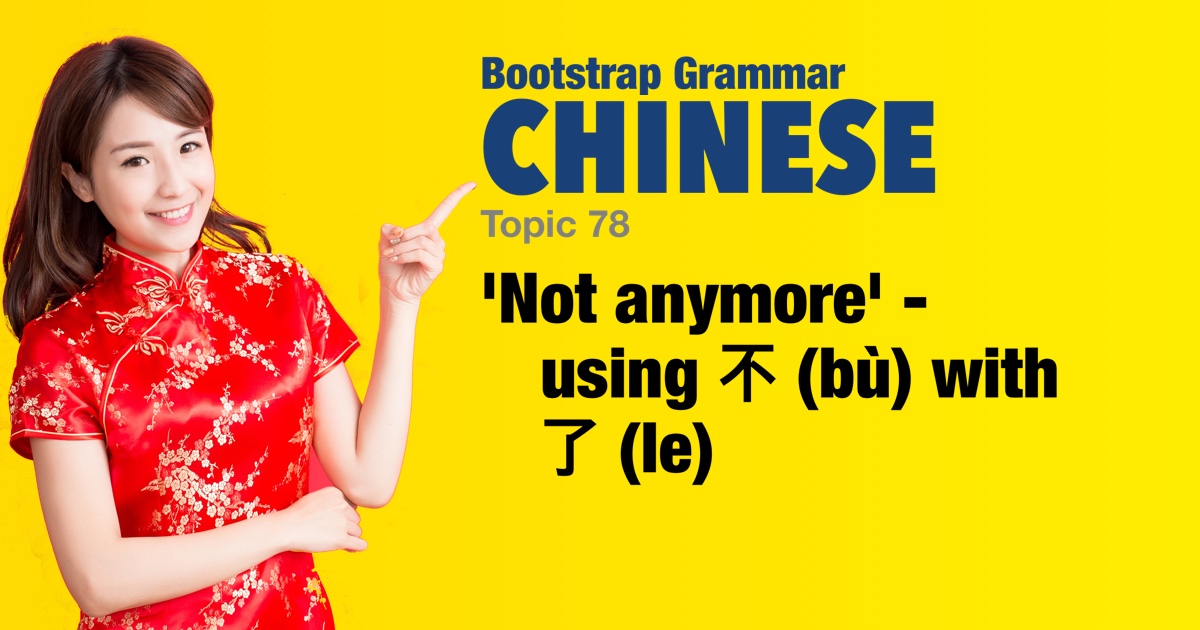Chinese grammar - 'Not anymore' - using 不 (bù) with 了 (le) |
|||
|
|||
In Chinese, using 不 (bù) with 了 (le) indicates that a previous state has changed to a different state - that is it is 'not anymore' in its previous state. The pattern is: [subject] + 不 + [verb/adjective] + 了。 |
| Examples: | |
|
我不冷了。
wǒ bù lěng le. I am not cold anymore. |
|
|
我不饿了。
wǒ bú è le. I am not hungry anymore. |
|
|
他不生气了。
tā bù shēngqì le. He is not angry anymore. |
|
|
天气不冷了。
tiānqì bù lěng le. The weather is not cold anymore. |
|
|
她不哭了。
tā bù kū le. She is not crying anymore. |
|
|
我不累了。
wǒ bú lèi le. I am not tired anymore. |
|
|
孩子不小了。
háizi bù xiǎo le. The child is not small anymore. |
|
|
我们不怕了。
wǒmen bú pà le. We are not afraid anymore.
|
|
|
他不累了。
tā bú lèi le. He is not tired anymore. |
|
|
房间不热了。
fángjiān bú rè le. The room is not hot anymore. |
|
|
天气不潮湿了。
tiānqì bù cháoshī le. The weather is not humid anymore.
|
|
|
我们不困了。
wǒmen bú kùn le. We are not sleepy anymore.
|
|
|
你不担心了。
nǐ bù dānxīn le. You are not worried anymore.
|
|
|
我不烦了。
wǒ bù fán le. I am not annoyed anymore.
|
|
|
她不害怕了。
tā bú hàipà le. She is not scared anymore. |
|
|
他不忙了。
tā bù máng le. He is not busy anymore. |
|
 |
|



